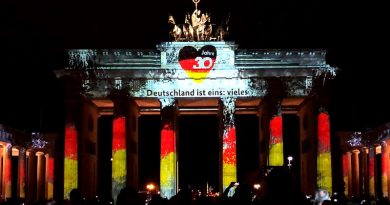South Korean President Indicted for Insurrection
Lara González-Santiago
Staff Writer
Yoon Suk Yeol, South Korea’s impeached president, was formally indicted on charges of insurrection on January 26, 2025. This marks a significant escalation in the legal battle surrounding his brief declaration of martial law in December 2024. The Associated Press reports that persecutors allege that Yoon’s imposition of martial law amounted to rebellion, as he deployed military forces with the intent of undermining the constitution. If convicted, he faces a possible life sentence or even the death penalty – even despite South Korea has not carrying out an execution in nearly 30 years, according to the Korea JoongAng Daily. Yoon was impeached and later arrested following his martial law decree on December 3, an action that sent troops and police officers to the National Assembly in an attempt to consolidate power. Lawmakers rejected the decree, unanimously voting to overturn it within six hours, forcing Yoon’s Cabinet to revoke the order. The Constitutional Court is now debating if Yoon should be permanently removed from office.
According to CBS News, prosecutors stated that Yoon’s declaration of martial law was not justified under the South Korean constitution, which permits such measures only in extreme emergencies, such as wartime. Many legal experts argue that South Korea was not facing conditions that would warrant martial law, and Yoon’s actions instead evoked memories of past military-backed regimes of the 1960s-1980s that used emergency decrees to suppress opposition. The New York Times states that military commanders who followed Yoon’s orders have testified that they were directed to forcibly remove legislators from the assembly chamber, fueling accusations that Yoon sought to obstruct the legislative process rather than maintain order.
Yoon, who is a staunch conservative, has defended his actions as necessary to “restore order” in response to what he described as liberal-controlled National Assembly obstructing his policies. During his martial law declaration, he referred to lawmakers as a “den of criminals” and accused them of enabling “anti-state forces” sympathetic to North Korea, according to U.S. News.
Despite his claims, Yoon repeatedly refused to cooperate with investigations prior to his arrest on January 15, said NBC News. The Corruption Investigation Office for High-Ranking Officials (CIO) led the probe, though Yoon’s defense team argued that the agency lacked jurisdiction over rebellion cases. After a court ruled otherwise, law enforcement carried out a large-scale operation at Yoon’s presidential compound to take him into custody.
His arrest sparked violent protests from his supporters in a riot at the Seoul Western District Court on January 19. Dozens of Yoon’s backers stormed the courthouse after a judge approved his continued detention, smashing windows and doors while clashing with police. Officers reported being attacked with bricks and steel pipes, leaving 17 injured. At least 46 protesters were arrested, with more expected to face legal action, according to PBS News.
Following Yoon’s indictment, the CIO transferred his case to the Seoul Western District Persecutor’s Office, which charged him with rebellion. His former defense minister, police chief, and several military officers involved in the martial law decree have also been arrested.
In a statement, Yoon’s lawyers condemned the indictment, calling it politically motivated and demanding the prosecutors to drop the charges and to instead investigate the CIO.
As South Korea remains divided over the crisis, the Constitutional Court’s final decision on Yoon’s fate is expected to have lasting consequences for the nation’s democratic institutions. While Yoon enjoys presidential immunity from most criminal prosecutions, this privilege does not extend to allegations of rebellion or treason, which allows legal proceedings against him to proceed.
Image courtesy of Getty Images.


